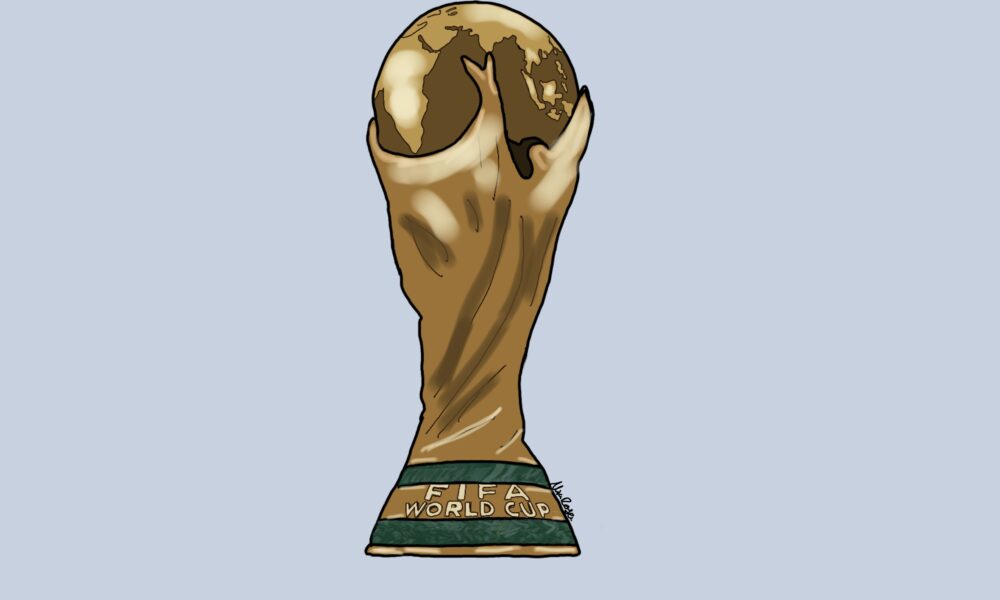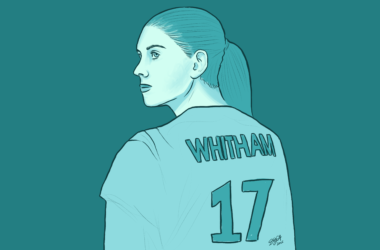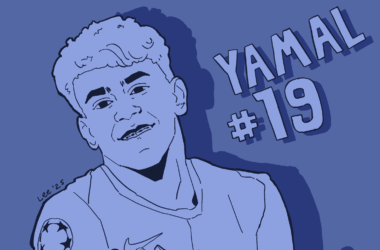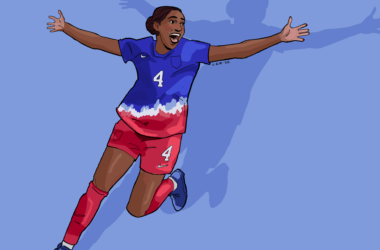Israel’s participation in major sporting events, like the Union of European Football Associations (UEFA) Nations League soccer tournament or the Olympic Games, has raised controversy among fans and activists alike. The double standard of sports governing bodies allowing Israel to compete has been particularly noticeable in the wake of FIFA and UEFA extending Russia’s international soccer suspension on Nov. 18. Russia was originally suspended just four days after its invasion of Ukraine in 2022 for violating international law. However, Israel continues to participate in the UEFA Nations League, despite ongoing violations of international law through its continuous human rights abuses in Palestine.
FIFA justifies its ban against Russia as part of its human rights policy, where it claims to stand by its commitment to take any measures necessary to avoid contributing to human rights abuses. FIFA banned South Africa from the World Cup from 1961 to 1992 because of the oppressive apartheid regime. Yet, this standard does not seem to apply to Israel. Article 76 (3) of FIFA’s statutes states that “member associations and their clubs may not play on the territory of another member association without the latter’s approval.” Despite this, the Israel Football Association (IFA) has at least eight clubs that play on occupied Palestinian territory in the West Bank.
FIFA has been aware of this breach since 2013, but Israel has faced no repercussions. The Palestinian national football team, on the other hand, faces a deteriorating security situation as a result of Israel’s occupation. Israeli forces have killed around 350 professional Palestinian athletes since Oct. 7, 2023, and Israel’s bombing campaigns have destroyed almost all the sporting facilities available in Gaza and the West Bank. The Human Rights Watch and the Palestinian Football Association argue that, by allowing Israel to compete, FIFA and UEFA are supporting and legitimizing the occupation.
While not a European country, Israel has been a part of UEFA since 1994. Originally, the IFA was a founding member of the Asian Football Confederation (AFC) in 1954. However, some AFC members, such as Kuwait and all of the Arab League nations, boycotted matches against Israel due to the occupation and treatment of Palestinians. Eventually, the AFC expelled Israel in a motion led by Kuwait in 1974. UEFA invited Israel to participate in European competitions starting in 1992 and permanently accepted it in 1994, despite Israel’s geographic location.
There was similar controversy over Israel’s ability to participate in the Paris Olympic Games this summer, while Russian athletes had to compete as Individual Neutral Athletes (AIN). At least 30 of the 88 Israeli Olympians publicly supported Israel’s actions. Palestine’s Olympic Committee called this out, pointing to the contradictory attitude the athletics community appears to have toward the treatment of Russian and Israeli athletes
During the opening ceremonies, spectators booed the Israeli national anthem, but France maintained its commitment to protecting Israeli athletes. Russia, on the other hand, was banned on the grounds of violating the ancient Greek tradition of Olympic Truce. Palestine’s Olympic Committee accused Israel of violating that same truce by continuing its violence in Gaza. Some athletes also disagreed with Israel’s presence, such as Tajikistan’s judoka Nurali Emomali, who refused to shake hands with his Israeli opponent.
In July 2024, the International Court of Justice (ICJ) found Israel guilty of a long list of human rights abuses and violations of international law. The ICJ deemed the Israeli occupation illegal and set out the standards of reparations that Israeli authorities owed Palestinian civilians. Similarly, on Nov. 21, 2024, the International Criminal Court issued a warrant for the arrest of Israeli Prime Minister Benjamin Netanyahu for the war crimes Israel has committed since Oct. 7, 2023. The warrant also included Israel’s Defence Minister, Yoav Gallant and a senior Hamas official, Mohammed Deif (although Israel states he was killed in a targeted July airstrike).
How can Israel, a country convicted of so many violations of international law, human rights, and sporting regulations still be allowed to compete? FIFA and UEFA seem to apply scrutiny over human rights selectively. As people continue to demonstrate against Israel’s participation, it seems unlikely that the country will face any restrictions on its ability to compete in the future. If FIFA and UEFA want to promote unity, diplomacy, and peace through sport, they must apply pressure to all countries committing human rights violations.









